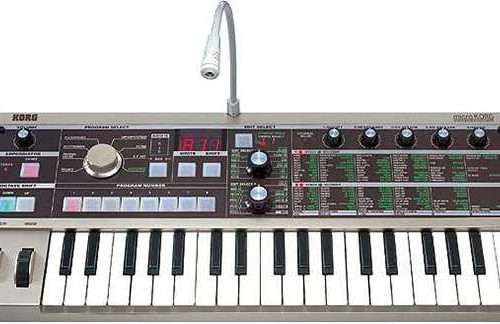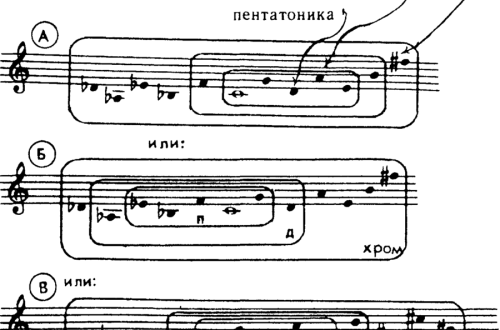
How to present yourself at a competition – simple tips
Every vocalist dreams of winning a singing competition or getting into a popular group, especially if he is young and talented. However, even a vocal teacher does not know exactly how to present himself at a competition, so his advice cannot always help a performer take a worthy place or simply perform well to be noticed.

Some performers, wanting to take part in the competition on their own, often do not show their data because they do not know the criteria for evaluating the performer or choose what they themselves like, and not a repertoire that shows the merits of their vocal training, and therefore often make mistakes.
Here are the most common of them:
- Sometimes the vocalist begins to rejoice in the fact that he can sing a very high or, on the contrary, low note, and chooses a difficult piece for the competition, which he himself is still unsure of. As a result, factors such as long waits and anxiety lead to the fact that at the most crucial moment he cannot show a decent result and receives a grade worse than he could (how to overcome anxiety before a performance).
- They often reveal, more than the voice, the poor preparation of the performer. Therefore, poor performance can reduce the score for artistry, and can also be perceived by the jury as poor preparation of the performance.
- There are songs that are interesting only in the video version or with dance accompaniment. When performed solo, they sound uninteresting and boring, especially if they have a lot of repetition. Choosing such a number reduces your score and your chances of getting into the finals.
- If you choose a gypsy costume for the performance of a Carmen aria, it will be accepted, but the same outfit will look ridiculous for the image of Juliet or Giselle. The costume should introduce the viewer to a different atmosphere and organically fit into the image of the vocal work.
- Each song has its own story and drama. The performer must not only think through, but also feel and convey the content, its drama or the main mood. It definitely has a plot, a climax and an ending, as well as intrigue. Only such a number can evoke not only an emotional response, but also be remembered by the audience. For example, all vocalists know the work “Adagio” by Albinoni. This is a dramatic work that can show different facets of the voice, including the ability to sing beautifully in different registers. But at competitions, rarely does anyone take first place with it, since not everyone can convey its drama, emotionality and passion, so it does not make an impression on almost all performers. But at one popular competition it was remembered by Paulina Dmitrenko. This singer was able not only to show the vocal side of this work, but to convey the emotional state of a woman almost crazy with passion to such an extent that at the end of the performance her voice even became a little hoarse. But the impression was amazing. This is how any performer should present herself at a competition.
Therefore, the vocal piece you choose should reflect not only all the facets of your voice, but also convey the emotional state that you feel, accept and understand.

Competitions are different, but the evaluation criteria for them are the same. The first thing the jury pays attention to is:
- It already in itself sets up the perception of a particular number. For example, a lyrical and light piece is expected from a blonde in a pink dress, while a more dramatic piece is expected from a girl with black hair in a long red dress. Clothes, the performer’s initial pose, his makeup and hairstyle – all this sets up the image and perception. Sometimes music is played before the performance. In this case, the performer’s exit can either introduce the viewer into his atmosphere or ruin the entire impression. But, if the number is comic, you can play on this contrast. The main thing is that the hairstyle, costume and type of performer correspond to the content of the vocal number.
- It shows not only your self-confidence, but also the degree of preparedness of the act. This is especially noticeable in fast numbers. Therefore, all movements and gestures need to be thought out and coordinated with the music, the sound of the number, as well as its content, but do not overdo it so that you have enough breath to sing. Remember that intense movements with jumping are only possible with a soundtrack, but not with a live performance. The vocalists don’t move much, but all their movements express emotions and fit organically into the content of the song.
- False performance is the first sign of unprofessionalism. In the first rounds, performers who cannot sing clearly, especially into a microphone, are eliminated.
- Many singers start screaming on high notes or start singing out of tune on low notes. This can also lower your score and your ability to reach the finals. This often happens if the piece doesn’t suit your voice and its range, especially for beginning vocalists.
- If you don’t pronounce your words clearly, it will be difficult for you to make it to the finals. But if you can play on intonation, then perhaps you will be able to conquer the jury with your performance, although victory is unlikely to go to you.
- Performers with low energy are immediately visible. Their voice sounds dull and lifeless, and their intonation becomes monotonous, not conveying the content of the song. Therefore, before the performance you need to rest and get in shape so that your performance remains emotional, despite fatigue. Tightness and stiffness are also visible in the voice. It becomes monotonous and metallic, like a robot, and sometimes disappears in some areas. Tightness also reduces the score for artistry because the performer was unable to get used to the character, feel and convey the content of the song (how to overcome tightness in the voice).
- Your work should maximally demonstrate the capabilities of your voice, the ability to sing in different parts of the range quietly and loudly. These are mandatory criteria for assessing voice and performance at any competition.
- The image you choose must be holistic and thought out to the smallest detail, and the repertoire itself must correspond to the objectives of the competition. If he has a patriotic orientation, then the song should be about nature, the beauty of his native country and admiration for it. If this is a competition of neutral content (for example, a competition for young performers), then the vocal work should show your voice, artistry and emotionality. And if this is a competition like “I Want Viagra,” then it should show your maturity, individuality and effectiveness, and not ridiculously deliberate sexuality, as many inexperienced casting participants did.
These rules will help you show yourself adequately, and also not become overtired during the long wait. Here’s what you need to know before entering the competition:
- Sometimes during an audition you are asked to show something unusual. This should not be done, as the jury is trying to identify performers with inadequate self-esteem and weed out too eccentric personalities. At the preliminary casting, you just need to sing an excerpt from the work purely and present the program. Sometimes the day before the competition they ask to show the entire number. This is done in order to remove poorly prepared numbers from the competition and concert program, so at the casting it is worth showing skill, but without overwork.
- So try not to be late.
- start preparing for it 2 or 3 numbers before going on stage, not earlier. Otherwise, you will burn out and won’t be able to sing the song beautifully.
- It is better to drink some juice or milk, but low-fat.
- This will help you start singing with fresh energy. You shouldn’t rehearse a lot before the competition itself – you will burn out and perform the song not as emotionally as you could.
- It is advisable to remain silent for an hour. This is the main thing you need to know before performing at the competition. Good luck, dear vocalists!






